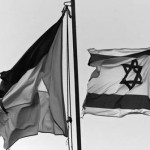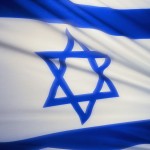Tuesday
Aug312010
Gaza Latest: Cairo Intercepts Missiles, Mossad's Flotilla Testimony, and Hamas on Direct Talks
 Tuesday, August 31, 2010 at 0:01
Tuesday, August 31, 2010 at 0:01  Missiles Intercepted by Cairo: Palestinian news Agency Ma'an reported on Saturday that Egyptian authorities intercepted a shipment of at least 190 anti-aircraft missiles, rockets, and other ammunition in Sinai and seized explosives and weapons in Rafah.
Missiles Intercepted by Cairo: Palestinian news Agency Ma'an reported on Saturday that Egyptian authorities intercepted a shipment of at least 190 anti-aircraft missiles, rockets, and other ammunition in Sinai and seized explosives and weapons in Rafah.Mossad to Give Flotilla Testimony: The Turkel Commission, an independent public commission set up to investigate the Freedom Flotilla attack, sent a letter to Mossad's Director Meir Dagan to give testimony. The commission has already called Israeli Prime Minister Benjamin Netanyahu, Defense Minister Ehud Barak, and top Israel Defense Forces officials for testimony on the decision-making process before the Israeli forces' raid on the Mavi Marmara, the flotilla's lead ship.
Israel: A Rabbi’s War on Palestinians (Yenidunya)
Israel-Palestine Opinion: Hamas, Northern Ireland, and US Diplomacy (Abunimah)
An Israeli military investigation team has already concluded that the operation's planners lacked critical intelligence. The team concluded there were "operational mistakes" but no “operational failures”, and it was possible to prevent the flotilla’s mission to Gaza by political means, such as the opening of land crossings.
Hamas United against Direct Talks: Last week Hamas' Damascus bureau leader Khaled Meshaal stated that the upcoming talks between Israelis and Ramallah were illegitimate and the result of Washington's coercion.
Gaza's leader Ismail Haniyeh followed this with the assertion that the Palestinians cannot give up Jerusalem or any other part of Palestine. Haniyeh said: "Israel is trying in dozens of ways to achieve its goal, and now it is through negotiations."


